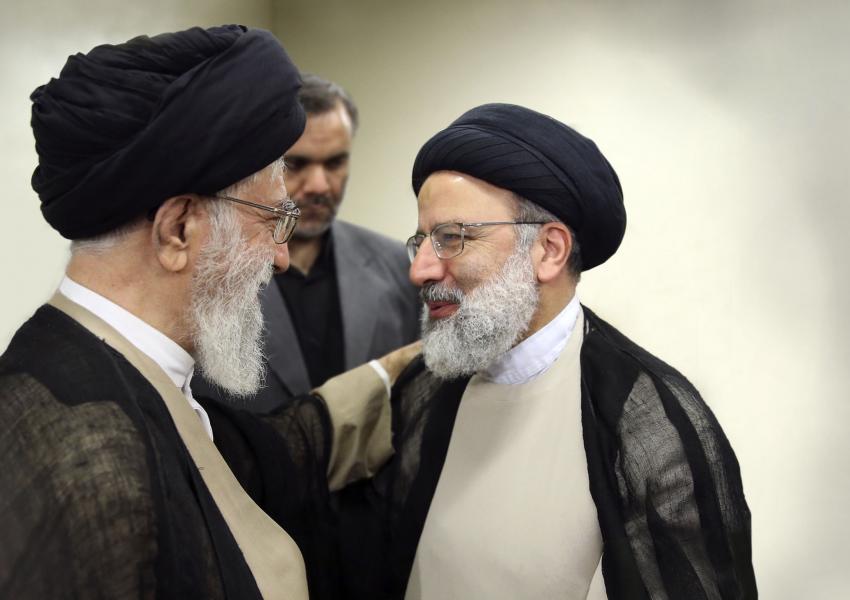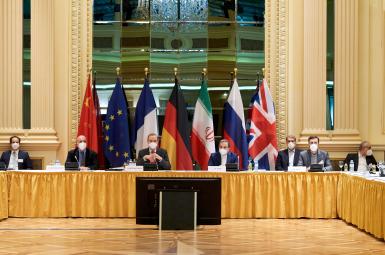
US Says Iran Nuclear Deal Depends On Khamenei Not Raisi
On Sunday, US National Security Advisor Jake Sullivan took to the airwaves to comment on the election of Ebrahim Raisi as Iran’s next president. Speaking to ABC News, Sullivan emphasized the “ultimate decision for whether or not to go back into [the 2015 nuclear] deal lies with Iran’s supreme leader” and not the president. In response to a question over whether the United States would lift sanctions on Ebrahim Raisi—which were imposed under Executive Order 13876 that targeted the Office of the Supreme Leader and his appointees—Sullivan said “the question of which sanctions will be lifted is currently being negotiated in Vienna and I’m not going to conduct those negotiations in public.”
The US national security advisor went on to stress, “I think what we need to do in the United States is keep our eye on the ball. And that is—our paramount priority right now is to prevent Iran from getting a nuclear weapon. We believe that diplomacy is the best way to achieve that, rather than military conflict. And so, we’re going to negotiate in a clear-eyed, firm way with the Iranians to see if we can arrive at an outcome that puts their nuclear program in a box.” Sullivan emphasized that there was still a “fair distance” to travel to conclude the nuclear negotiations, and that key issues remain unresolved.
The Wall Street Journal reported on Sunday as well that Iranian officials are still demanding reparations for the US withdrawal from the nuclear deal and assistance in reviving foreign investment and business deals that collapsed after May 2018. Iran’s Deputy Foreign Minister Abbas Araghchi has also been demanding guarantees a future US presidential administration would never withdraw again from the deal—a demand that will prove very difficult for Washington to fulfill as the nuclear deal has not been ratified by the U.S. Senate as a treaty.
Separately, the sixth round of talks in Vienna on reviving the Iran nuclear deal concluded on Sunday. As the talks adjourned, diplomats from the E3—France, Germany, and the United Kingdom—told reporters that “time is on nobody’s side. These talks cannot be open ended” and that the most difficult issues still need to be resolved. The deputy secretary general of the European Union’s External Action Service, who is coordinating the talks, said he expected the International Atomic Energy Organization (IAEA) would be able to conclude a deal to extend a temporary monitoring agreement with Tehran, which is scheduled to expire on June 24.
Several Iranian officials told Reuters that Tehran’s current nuclear negotiating team would remain in place for the next few months, even after Ebrahim Raisi takes office in August. Reuters quoted another Iranian official as saying that if a deal is finalized before Raisi is inaugurated as president, the new president will be able to deflect blame for any concessions onto his predecessor. “Rouhani, not Raisi, will be blamed for any future problems regarding the deal.”
With reporting from ABC News, Reuters, The Wall Street Journal, and Bloomberg






